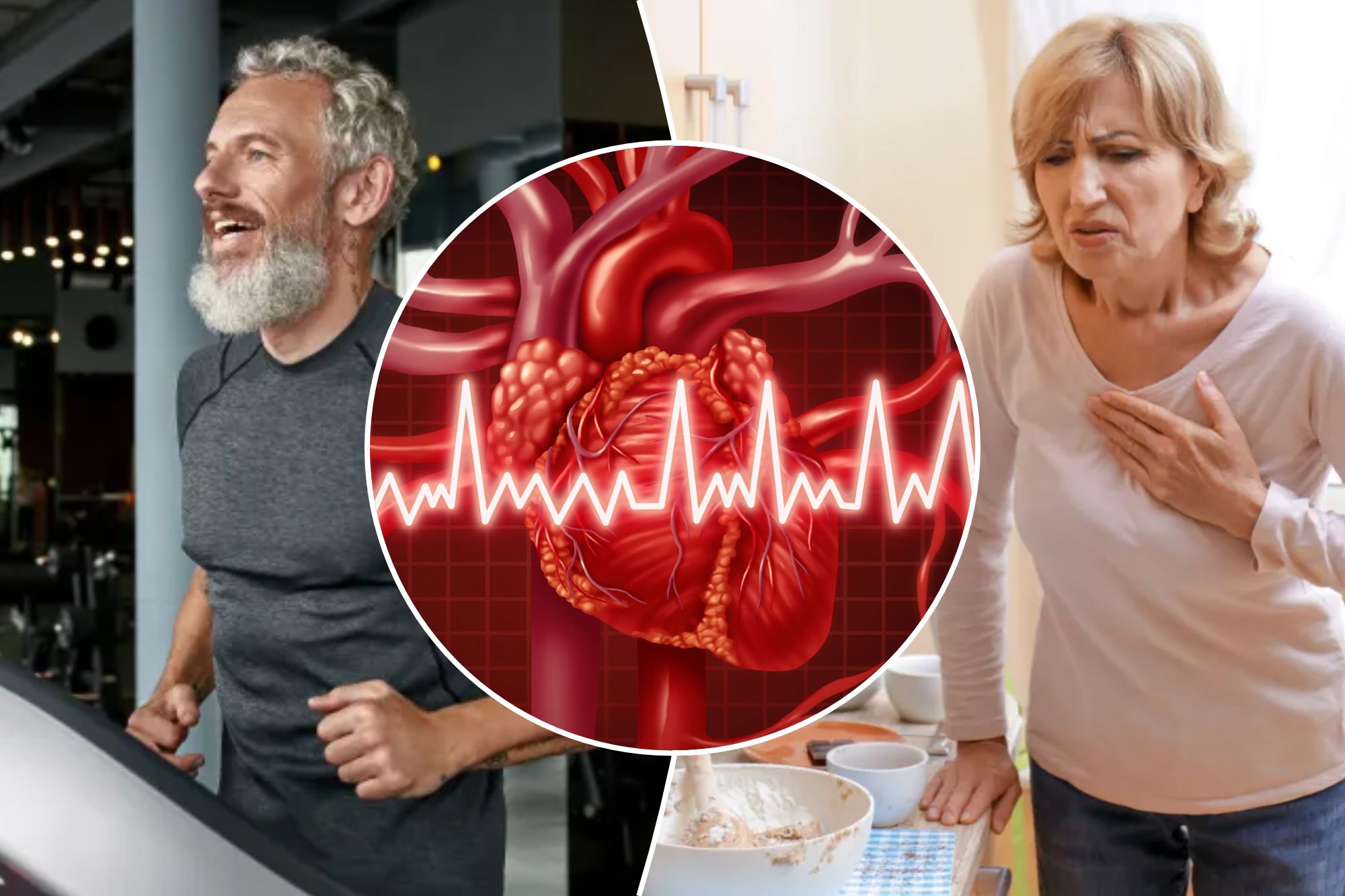
Find it in your heart … pay attention to these symptoms.
Heart attacks are the most common in people 65 years old and older, but that does not mean that you are clear until you reach retirement age.
There is a worrying increase among adults younger than 45, making it even more important to make healthy lifestyle choices and monitor the symptoms of stories at any age.
Dr. Hannah Rosenblum, a Cardiologist in Newy York-Prresbyterian/Columbia University Irving Center, told the post which signs and symptoms to be on the observation of your 40s, in the 1960s.
Heart disease has been the main cause of death – in the US since AHA was founded in 1924.
The American Heart Association warns that 61% of American adults are likely to develop a type of cardiovascular disease in the next 30 years as high blood pressure, â diabetes, and obesity become more common.
“People in the 1960s can be at risk of developing heart disease even if they currently have no symptoms,” Rosenblum warns.
“They should follow a healthy diet for heart-to-heart, low fat, sugar and salt” and try to get at least 150 minutes a week moderate intensity exercises. “
Exercise problems
In fact, trouble after 40, exercise intolerance or a change in the ability to exercise can be a red flag for heart disease.
“If you are usually able to run 3 miles but suddenly notice that you have no breath or you have chest pain with exercise, you should see a cardiologist,” the doctor said.
Exercise is essential for cardiovascular health as it strengthens the heart muscle, making it more efficient in pumping blood, lowers cholesterol and contributes to weight loss.
Rosenblum’s advice echoes physical activity guidelines for Americans, who says adults should aim for 150 minutes of moderate intensity physical activity and two days of muscle strengthening per week.
â € œ In addition to cardiovascular benefits, improvements in cognitive function and memory, mood and stress, and longevity, all have been documented, Ohio -based cardiologist, Dr. David Sabgir told the post earlier.
Bad diet, bad habits
While training and a healthy heart diet reduces the risk of cardiovascular disease, smoking, sugar and anger amplify it.
Smokers are nearly twice as likely to have a heart attack than the ioners.
Passing puffing and cutting sugar and rabies provide a solid foundation, but to further preserve heart disease, Rosenblum recommends that people see their primary care doctors for risk assessment and routine performances for blood pressure, cholesterol and diabetes.
“Many patients in this age group who start developing cardiovascular disease may not have symptoms,” she said.
Various risk factors for women
“Specifically for women in this age group, change of risk during menopause with hormone fluctuations, so it is important to make sure you control blood pressure, cholesterol and A1C,” the doctor added.
Nearly 45% of women over 20 are living in a form of cardiovascular disease.
Gender -specific risk factors include menstrual history and adverse pregnancy results, anxiety and depression, and increased risk due to specific breast cancer treatments and rheumatological conditions.
If you have a family history of heart attack or stroke to men before 55 or women before 65, Rosenblum recommends seeing a cardiologist for advanced review and discourse on how to reduce your risk and preventive medication if necessary.
While chest pain is the most common symptom of a heart attack, Dr. Guruprasad € œguruâ srinivas, director of cardiac rehabilitation in Northwell Staten Island University Hospital, recently told that atypical signs may include toothache, nausea/indigenous, sweating, fatigue and more worrying, no symptoms, putting them at all, at risk for a silent heart attack.
#Signs #Heart #Health #ignore #40s #50s #60s
Image Source : nypost.com